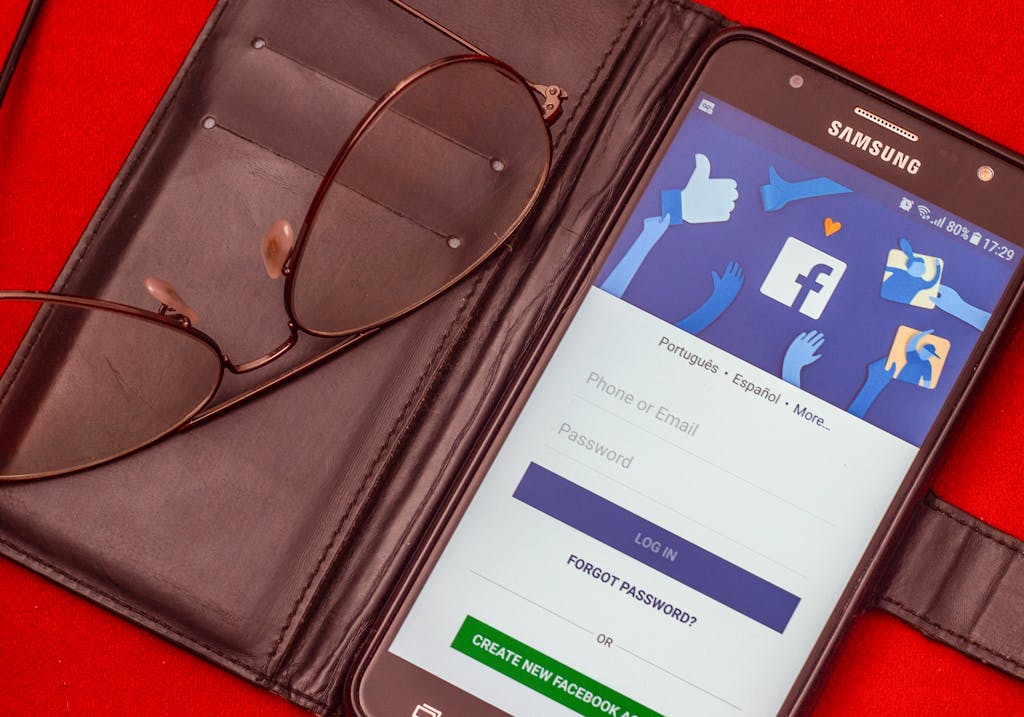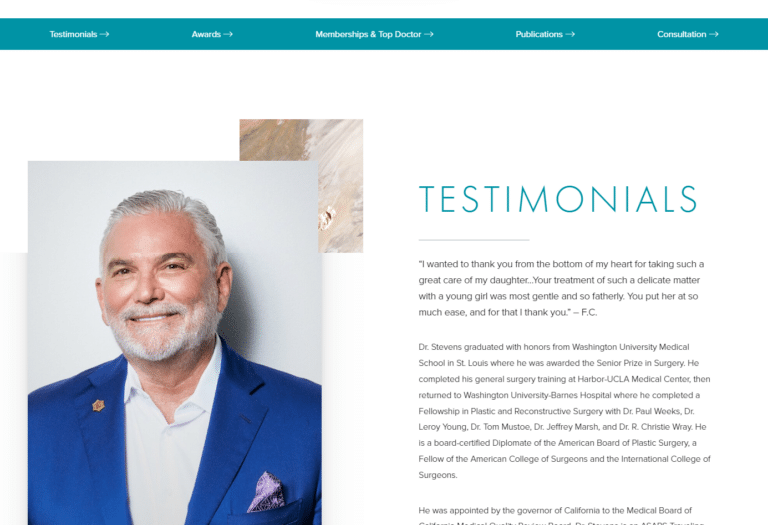Social media has forever changed the way we communicate and share information. The healthcare industry has not been left behind in this revolution. If you’ve been reluctant to use Facebook, Instagram, Youtube or other platforms, check out these 5 reasons why social media can be a game-changer for your healthcare venture.
1. Build Your Brand Through Social Media
Social media presents a powerful tool for healthcare companies to build and strengthen their brand. Establishing a unique and recognizable brand image on social media is crucial, and consistent branding across all of your social channels can help to enhance recognition and loyalty. However, just being on social media isn’t enough. Here are some recommendations for getting the most out of your social media accounts:
- Optimizing Social Media Profiles: One key to reaping the benefits of social media is optimizing each profile on platforms like Facebook, YouTube, and Instagram by adding specific details about your practice.
- Visual Brand Identity: By using consistent branding elements like your logo, color scheme, and messaging, you can create a strong visual identity for your healthcare company that potential patients will easily recognize.
- Showcasing Expertise and Unique Offerings: You can pair your visual brand identity with your values and mission, thereby building credibility and trust among your followers. By showcasing your expertise and unique offerings, healthcare organizations can attract new patients and customers.

2. Humanize Your Healthcare Business With Social Media
Humanizing your healthcare business through social media helps potential clients to see your company for what it is — people helping people. This allows you to highlight the compassionate and personalized care provided by your organization, showcasing the positive impact your services have on patients’ lives and the community around them. Here are some ways you can do this:
- Sharing Behind-the-Scenes Content: Social media posts that give followers a glimpse into what goes on behind the scenes allow potential clients to feel a connection and imagine themselves in your office.
- Encouraging Patient Participation: Encouraging patients to share their own pictures and stories of their time in your care can build trust with potential patients. Social media contests and campaigns are a great way to incentivize patients to create and share content, increasing engagement and visibility.
- Showcasing Positive Stories: Sharing patient testimonials and success stories on social media allows you to show your community what real customers are saying about your business. Showcasing appreciation for patient contributions by featuring them on your social media channels further strengthens the connection with your audience.
- Personalizing Your Business: Let your audience see the human side of your healthcare organization through staff spotlights and interviews.
- Celebrating Milestones: Use social media to celebrate healthcare milestones and success stories.
These are a few effective ways to personalize your healthcare social media marketing strategy and build a strong online presence.
3. Patient Education via Social Media
Social media is a powerful tool for patient education, allowing healthcare companies to share useful health tips and advice, such as:
- Simplifying Complex Topics: Platforms like Facebook and YouTube offer the opportunity to simplify complex medical topics through educational videos and infographics.
- Addressing Misconceptions: By providing reliable information and addressing misconceptions and misinformation, social media campaigns can help promote preventive healthcare and improve overall health literacy.
- Establishing Trustworthy Information: By sharing reliable health information, you can establish your organization as a trusted internet source in a sea of potentially dubious information.
Social media provides healthcare companies with a platform to share important health updates and reach a wider audience with health messages.
4. Enhance Patient Engagement with Social Media
Social media platforms are a good place to enhance patient engagement in several ways:
- Thought-Provoking Discussions: Regularly sharing informative content that encourages patient interaction fosters a sense of community.
- Engaging with Healthcare Issues: When there are thought-provoking or divisive topics or articles, you can actively engage with patients by asking their thoughts or experiences, which can help create an engaging space to talk through healthcare issues.
- Encouraging Patient Participation: Asking patients to share their thoughts, opinions, and experiences through comments and reviews enhances interaction.
It is important to note that comments and direct messages should be responded to quickly and reliably. In many situations, your online interaction may be a potential patient’s first interaction with your business. In the end, you want to create a space where patients can connect, ask questions, and receive reliable healthcare information.
5. Improve Search Engine Rankings by Optimizing Your Facebook Profile
Optimizing your social media profiles, and Facebook in particular, can help not only to engage your audience but also signal to search engines that you are an expert and sought-after voice in your niche. You can help search engines to find your social media profiles by:
- Optimizing Social Media Profiles: Social profiles can rank in Google, so making sure that your profile and bio are accurate and up to date for the best visibility.
- Utilizing Keywords and Hashtags: By utilizing relevant keywords and hashtags, you can improve your search rankings and attract more social media users.
- Maintaining Updated Profiles: Regularly updating and maintaining your profiles, including your Facebook page, ensures they are search engine friendly.
Increase Website Traffic with Content Your Audience Can Use
In addition to acting as a communication tool, social media profiles can also serve as local citations, boosting your search engine rankings. Attract visitors to your profile by sharing informative and engaging content on platforms such as Instagram, YouTube, and Facebook, and then make sure that your posts include the URL that points back to your website. Google and other search engines will see this as a signal that your content is helpful to users looking for advice related to your area of expertise.
Do the Benefits of a Healthcare Social Media Presence Outweigh the Risks?
While the benefits of using social media in healthcare are substantial, it’s essential to navigate the regulatory and ethical landscape carefully. Here are some key things you’ll need to keep in mind:
- Patient Privacy: Healthcare companies must adhere to strict patient privacy regulations, such as the Health Insurance Portability and Accountability Act (HIPAA) in the United States. Social media platforms are public spaces, and sharing any patient information, even unintentionally, can lead to legal consequences. It’s crucial to educate your social media team and staff about the importance of safeguarding patient privacy.
- Consent and Authorization: Before sharing any patient-related content, it’s vital to obtain clear consent and authorization from the patients involved. This includes written consent to share their stories, testimonials, or images. Always respect the patient’s right to privacy and ensure that their identity is protected.
- Data Security: Protecting the security of patient data is paramount. Ensure that your social media accounts and any online platforms used for patient engagement are secure. Implement strong passwords, two-factor authentication, and encryption to safeguard sensitive information.
- Accuracy and Transparency: When sharing medical information or health tips on social media, ensure that the content is accurate, evidence-based, and upholds the highest standards of medical ethics. Clearly indicate the source of information, and avoid making unsupported claims or endorsements of specific products or treatments.
- Professional Boundaries: Maintain professional boundaries on social media. Avoid engaging in personal or unprofessional discussions, and refrain from offering specific medical advice to individuals. Social media should not replace direct doctor-patient communication.
- Crisis Management: Have a plan in place for handling social media crises, such as patient complaints or negative comments. Respond with empathy and professionalism, and be prepared to address issues privately when necessary.
By adhering to these regulations and ethical standards, healthcare companies can harness the power of social media while protecting patient privacy and trust. It’s a delicate balance that, when executed correctly, can amplify your organization’s positive impact and reputation while minimizing the risks associated with social media in healthcare.
Need Help Implementing a Social Media Plan for Your Healthcare Business?
A well-structured healthcare social media marketing plan can help your business to increase brand identity, humanize your brand, attract new patients, establish you as a leader in the field, as well as allowing for more engagement with your target audience. But for many healthcare businesses, keeping up with social media is not a job they have time for. That’s where Thunderhead Marketing comes in. Contact us today to learn more about how our social media marketing experts harness Facebook, Instagram, YouTube, and Tik Tok for healthcare professionals to build your brand and grow your business.






![How Doctors Can Respond to Online Reviews Without Violating HIPAA [FREE TEMPLATE]](https://thunderheadmarketing.com/wp-content/uploads/2024/06/Respond-to-Online-Reviews-Without-Violating-HIPAA-768x671.jpg)